By Joseph Bernstein
June 25, 2025 Updated 2:17 p.m. ET
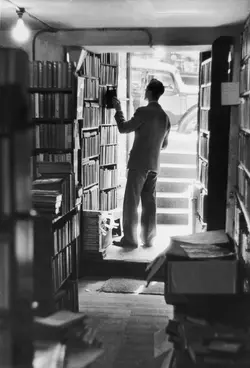 In the mid-20th century, when this man browsed bookstore shelves, fiction was a boys club. Today, the situation has changed. John Murray/Hulton Archive, via Getty Images
In the mid-20th century, when this man browsed bookstore shelves, fiction was a boys club. Today, the situation has changed. John Murray/Hulton Archive, via Getty Images
For the first meeting of his book club for men, Yahdon Israel, a 35-year-old senior editor at Simon & Schuster, asked the participants to bring a favorite work of fiction. Not everyone completed the assignment.
One man brought “Watchmen,” a graphic novel. Valid, technically.
Another scoured his home bookshelf and realized he did not own a single novel or short story collection. So he showed up to the meeting with a nonfiction book about emotional intelligence. (Mr. Israel
posted a photo of the seven millenial-ish men in the group, each holding his selection, to his Instagram account.)
Mr. Israel, who has hosted another book club for nearly a decade, started this group last December in an effort to inspire heterosexual men to read more fiction. He solicited members over social media. For the second meeting, he assigned a story collection by Jamel Brinkley, “A Lucky Man,” which examines contemporary masculinity. For two hours, the men discussed the book, and the theme.
The next day, Mr. Israel had a panic attack. Two days later, he said, he was diagnosed with depression.
He has spent the months since grappling with painful realizations that came out of the discussion, about how toxic masculinity has harmed his own marriage, especially the idea that real men do not share their feelings. It was an epiphany out of James Joyce, unlocked, he said, by that conversation in the book club.
Indeed, while Mr. Israel might have convened the group to help other men read more fiction, he has since realized that there’s an even deeper reason.
“I’m doing this because I need it,” he said in an interview.
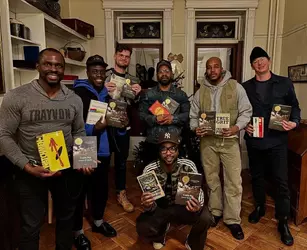 Yahdon Israel, center, and members of his “Fiction Revival” book club, aimed at inspiring straight men to read more fiction. Porsalin Hindsman-Israel
Yahdon Israel, center, and members of his “Fiction Revival” book club, aimed at inspiring straight men to read more fiction. Porsalin Hindsman-Israel
So do lots of men — at least according to a robust debate unfolding in
opinion pages and
news articles, on
social media platforms and inside the publishing world. By turns a maligned or suspicious figure in decades past — in the case of the “Infinite Jest” lover, for instance — or a fetishized one — consider the enormously popular “Hot Dudes Reading” Instagram — the figure of the literary male reader is now disappearing, some say, and his disappearance is a matter of grave concern.
These articles, which focus explicitly or implicitly on straight men, connect the fact that these men are reading fewer novels to a variety of social maladies, up to and including deleterious effects on American democracy itself. If more men were reading like Mr. Israel, the thinking goes, the country would be a healthier place: more sensitive, more self-aware, less destructive. As more American men fill their hours with the crude talk shows of the “manosphere,” online gambling and addictive multiplayer games, the humble novel — consumed alone, requiring thought and patience — can look like a panacea.
It’s a lot of pressure to put on the reading man, who for many people remains a fittingly prosaic sight, unworthy of deeper thought or further comment. Perhaps he is passing the time on a commute, or taking a break from the stresses of the day. Little does he know, he’s been drafted into a new front in the culture war over the future of men.
On a recent afternoon in June, Jack Kyono, an assistant manager at McNally Jackson, the stalwart New York book chain, walked the floor of the store’s SoHo location. Mr. Kyono was quick to point out that not all men read in the same way. International tourists are buying different books from older American men, who are buying different books from young professionals. But he broadly agreed with the idea that when it came to reading fiction, straight men were followers, not leaders. They might read Sally Rooney or Ocean Vuong, he said, but only after an audience of straight women and queer people had made them cultural touchstones.
Earlier on the phone, he told me he had noticed a gender divide among the stacks: When groups of women wandered into the store, they frequently browsed together, pointing out books they had read and making suggestions for their friends — an act that booksellers call “the handsell.”
Meanwhile, when men came into the bookstore with other men, they typically split up and dispersed to far corners of the store.
“It’s solo browsing time,” he said.
Navigating the aisles, Mr. Kyono, 27, led us to a cubicle-size display near the back dedicated to science fiction and fantasy, where the shelves were heavy with multipart series with names like “Iron Gold” and “Light Bringer.” Nearby, an alcove of the American fiction section from F through K contained many of the most famous male writers of what Mr. Kyono called the “American high school reading curriculum”: Faulkner, Hemingway, Heller, Kerouac.
“This is a hot corner for men,” he noted.
So, too, was a nook featuring literature in translation. Here, said Mr. Kyono, another kind of male reader snaps up long, ambitious novels from Czech, Romanian and Austrian writers — someone who may fit into the much-debated trope of the “
high brodernist,” male readers and critics who prize esoteric, challenging texts in translation.
Inside the store, the customers were overwhelmingly women. But there were a few men. Some, like Daniel Schreiner, 38, were fans of the fantasy star Brandon Sanderson. He said he thought men read less fiction than women because “we’re less literate than they are.” Another man, Louis Nunez, 41, said he did not read fiction, and typically picked out nonfiction books related to spirituality.
“But spirituality is like fiction to some people,” he said.
There was at least one man in the store who planned to buy a work of fiction: Bob Ryan, a college literature professor, holding a novel about a Japanese architect. Mr. Ryan, 37, said he had trouble getting many of the young men in his courses interested in the material, because they did not see the benefit of novels. “They’re more interested in the instrumental,” he said.
Eventually, Mr. Kyono took me to the front to look at an attractive “customer favorites” display. Here, pastel and vivid colors dominated the covers of books by romance and “romantasy” stalwarts like Carley Fortune and Sarah J. Maas, the author of the
popular “A Court of Thorns and Roses” series.
Beyond the bookstore, much of the architecture of book discovery is informally targeted at women. Celebrity book clubs are mostly led by female celebrities and increasingly court women of all ages, from those who are fans of Oprah Winfrey and Reese Witherspoon to those who are more interested in the tastes of Dua Lipa and Kaia Gerber. (Former President Barack Obama, the obvious straight male exception, releases a single list of his favorite books every year.) #BookTok, the vast community on TikTok that has become a
best-seller machine, is largely populated by women recommending books by other women, like Colleen Hoover’s “It Ends With Us.”
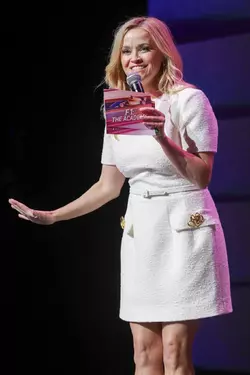 Reese Witherspoon started Reese’s Book Club in 2017. Mireya Acierto/Getty Images
Reese Witherspoon started Reese’s Book Club in 2017. Mireya Acierto/Getty Images
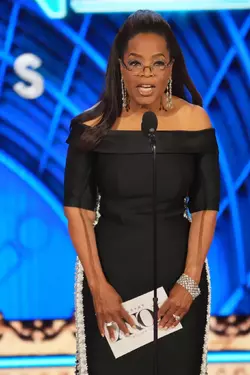 Oprah Winfrey started “Oprah’s Book Club” in 1996 to recommend favorite titles to her audience. Sara Krulwich/The New York Times
Oprah Winfrey started “Oprah’s Book Club” in 1996 to recommend favorite titles to her audience. Sara Krulwich/The New York Times
There are counterexamples that prove the rule. C.J. Box, the author of a long-running series about a Wyoming game warden who solves murders,
has expanded his audience to include younger men by appearing on a series of podcasts about hunting, fishing and other outdoors subjects.
But literary novelists — the kind who populate prestigious lists and publish the “big” books of the year — have not seemed to crack the code with straight guys, at least on social media.
One common argument focuses on supply: that men are not reading fiction because the subject matter of contemporary fiction does not speak to men. Jordan Castro, a novelist whose books inhabit the minds of frustrated men, wrote in an email that “the general tone and etiquette of the literary world is certainly hostile to masculine expression.” Conduit Books, a new indie press that debuted this year, will focus on books by male authors, and will center “overlooked” themes of “fatherhood, masculinity, working-class male experience, sex and relationships, and negotiating the 21st-century as a man.”
These arguments hark back to a midcentury culture of fiction writing dominated by men writing about masculine subjects and the male experience. But it was not always thus. In the 19th century, the most popular novels were written by women for a female audience. Their output was considered “paltry entertainment,” according to Dan Sinykin, a professor of English at Emory University and the author of “Big Fiction: How Conglomeration Changed the Publishing Industry and American Literature.”
Many of these titles were so-called sentimental novels, whose virtuous heroines illustrated proper moral conduct. In 1855, Nathaniel Hawthorne described American novelists to his publisher as “a damned mob of scribbling women, and I should have no chance of success while the public taste is occupied with their trash.”
A century later, the story had changed, and publishing had become a boys club with cultural cachet, according to Mr. Sinykin. Literary form was prized above social instruction.
Starting in the 1980s, a new generation of women came to dominate the publishing industry. The “feminization” of the industry, as Mr. Sinkyin called it, resulted in a business that “assumes its primary audience is white women between 30 and 65” and publishes books to suit their tastes.
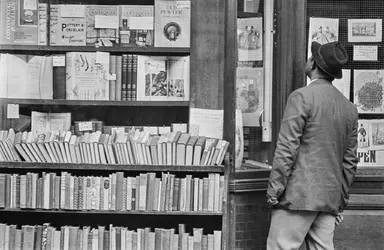 Some people are worried about the disappearing figure of the literary male reader. In the mid-20th century, publishing catered more to his tastes. Evening Standard/Hulton Archive, via Getty Images
Some people are worried about the disappearing figure of the literary male reader. In the mid-20th century, publishing catered more to his tastes. Evening Standard/Hulton Archive, via Getty Images
In one sense, then, for men to read more fiction as the world of the novel exists today would not just require more stereotypically masculine subject matter. It might be a matter of men approaching their reading lives a little more like women do — getting recommendations online from celebrities and influencers, browsing together, forming book clubs.
One thing that may help: brick-and-mortar bookstores giving traditionally male-focused genres the romantasy treatment, said Shannon DeVito, the senior director of books at Barnes & Noble. According to Ms. DeVito, over the past six months, the chain has had growing sales from contemporary science fiction and fantasy authors like Matt Dinniman and James Islington.
“It’s not a concerted effort to get men to read more,” said Ms. DeVito. “It’s just great books that appeal to that audience.”
Book culture is not a monolith. According to BookScan, some 782.7 million books were sold in 2024, and the rapid growth of the self-published book market means that there is fiction to suit almost every taste. In this context, what Mr. Sinykin called the “worst version” of the critique of contemporary fiction — that liberal politics have destroyed the space for male readers — seems like a huge oversimplification. And many people who care about the future of the male fiction reader are keen to avoid it.
Mr. Israel deliberately did not include the words “man” or “men” in the name of his book club. He called it “The Fiction Revival,” to underline the idea that there was a kind of reading experience for men that needed to be resuscitated.
Max Lawton, a translator who frequently works on long European novels, scoffed at the “corny idea of the male reader” who is interested only in stereotypically masculine subjects and austere prose.
“Being a reader is not a two-party system — you can read whatever you want,” he said.
Even Mr. Castro, the novelist, rejected the idea of a countermovement in the name of masculine identity. “Resentment, performing or embodying a self-consciously ‘masculine’ identity at the expense of literary value, is cringe,” he wrote in an email. “‘Identity’ is not a literary value.”
One real challenge at hand is a frenzied attention economy competing for everyone’s time, not just men’s. To present the sorry state of the male reader as having solely to do with the gendered quality of contemporary fiction misses a screen-based culture that presents nearly unlimited forms of entertainment.
“Our competition isn’t other publishers,” said Sean Manning, the publisher of Simon & Schuster. “It’s social media, gaming, streaming. All these other things that are vying for people’s time, attention and financial resources.”
Asked whether the publishing industry needed straight men to read more fiction as a purely economic matter, Mr. Manning focused instead on the social benefits of reading.
“It’s a problem if anyone isn’t taking advantage of an incredible artistic medium,” he said. “It’s hurtful not to be well-rounded.”
In an effort to get more people — yes, among them, men — to pick up his books, Mr. Manning is trying to make his own back catalog speak more to the culture at large. He has commissioned Taylor Sheridan, the creator of such man-approved shows and movies as “Yellowstone” and “Sicario,” to write the introduction to a new edition of Larry McMurtry’s classic western, “Lonesome Dove.” (Another guy-friendly introduction to an old title: the Metallica drummer Lars Ulrich on Hunter S. Thompson’s “Screwjack.”)
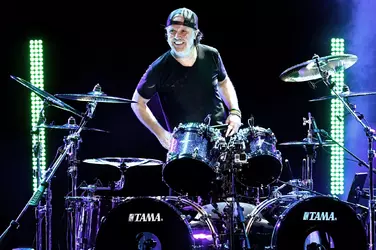 Simon & Schuster asked Lars Ulrich of Metallica to write an intro to a work of Hunter S. Thompson’s. Kevin Winter/Getty Images
Simon & Schuster asked Lars Ulrich of Metallica to write an intro to a work of Hunter S. Thompson’s. Kevin Winter/Getty Images
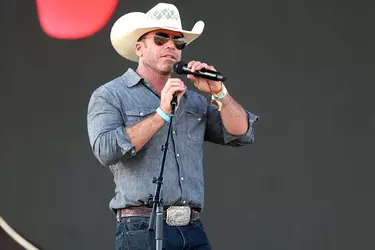 And asked Taylor Sheridan, the creator of “Yellowstone,” to write the introduction to a new edition of Larry McMurtry’s “Lonesome Dove.” Monica Schipper/Getty Images
And asked Taylor Sheridan, the creator of “Yellowstone,” to write the introduction to a new edition of Larry McMurtry’s “Lonesome Dove.” Monica Schipper/Getty Images
Mr. Manning might be happy to reach a book club like the one Andy Spackman, 46, started in the Lawrence, Kan., area three years ago. A former construction worker married to the best-selling memoirist Sarah Smarsh, Mr. Spackman said he felt that he did not have anyone to talk to about books, and that a book club might be a good way to bond with other men.
“I’m always seeing women out doing things and being friendlier toward each other than men are,” he said.
Since convening the group, the men have read Cormac McCarthy’s “Blood Meridian,” Donna Tartt’s “The Secret History” and James McBride’s “The Good Lord Bird,” among others. Dissecting and reassembling the ideas in these books, Mr. Spackman said, has led to a level of depth and intimacy with other men that he never got from inviting friends over to play video games, or from hanging out at the bar.
That does not mean, however, that there is no role for that time-tested male social lubricant, and subject of much great writing by men.
“Full disclosure,” Mr. Spackman said. “There is alcohol at the book club.”
Source (Archive)